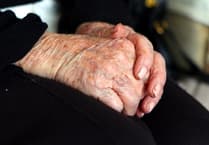Devon and Cornwall Police and Crime Commissioner Alison Hernandez has announced new policing project as part of Project Nighteye to tackle violence against women and girls and improve safety for women going out at night.
Project Vigilant, involves specially trained officers (either in plain clothes or uniform) will patrol outside bars and clubs, between specific times and places across Devon and Cornwall. This is part of Project Nighteye, a campaign to catch sexual predators and increase safety for women and girls in public spaces on nights out, which has been rolled out in several locations already including Tavistock and Okehampton.
The decision to improve Project Nighteye follows on from data published by Thames Valley Police which showed that the Project Vigilant tactic, trialled in 2019, had successfully reduced the number of sexual offences by 30% and the number of rapes by 50%, in the evening and night-time economy.
The initiative was rolled out as part of the Police and Crime Commissioner's plan to focus on tackling violence against women and girls. She said: "I have prioritised tackling violence in my Police and Crime Plan, particularly violence against women and girls, so I’m encouraging people to report concerns straightaway. This is about all of us speaking out if something doesn’t seem right and not turning a blind eye to harassment and violence. I want all women and girls to stay safe on a night out and feel confident that their safety is our concern".
Project NightEye is supported by Devon & Cornwall’s Serious Violence Prevention Programme and specifically targets potential male perpetrators of violence against women and girls. by identifying predatory sexual behaviour and intervening to prevent this escalating to an offence. This could include groups or individual men, either on foot or in vehicles, loitering for no reason, men making unwanted contact towards women, attempting to isolate women from their friends or making lewd or sexual comments. Local police officers are working with partners, such as venue and security staff to identify and target potential offenders and have delivered training to CCTV operators so that they might identify predatory sexual behaviour too.
Police said they hope Project Nighteye will be used in even more locations across Devon and Cornwall soon.
Temporary Assistant Chief Constable Steve Parker said: “Everyone can help make public spaces safer by reporting suspicious or unacceptable behaviour to the police, so if you see something that doesn’t look right or makes you feel uncomfortable, please let us know through our online reporting forms, or submit anonymously though Crimestoppers. This helps Devon & Cornwall Police to target where and when Project NightEye is used.
"With police, partners and the public working together, it is imperative that we call out, target and robustly manage criminal offending that disproportionately affects women and girls.
“Project NightEye sends out a clear message to predatory men that their behaviour will not be tolerated. Anyone out at night should be confident that Devon & Cornwall Police is targeting those who choose to harass or assault women or girls, and also men or boys.”
Members of the public can also use the StreetSafe app, available for both iPhone and Android devices. The app allows anyone to anonymously report public places where they have felt unsafe for whatever reason, such as being followed or verbally abused. The information it provides is invaluable to the police for building a picture of where best to deploy their resources, and for partner agencies to consider if any environmental improvements can be made.
- If something doesn’t look right, report it here: www.devon-cornwall.police.uk/ro/report or call 101.
- You can report anonymously through Crimestoppers here: https://crimestoppers-uk.org or on 0800 555 111.
- Download the StreetSafe app on iPhone or Android and tell us anonymously where you don’t feel safe, or use StreetSafe online here: www.police.uk/pu/notices/streetsafe/street-safe
- If anyone is in immediate danger call 999.




